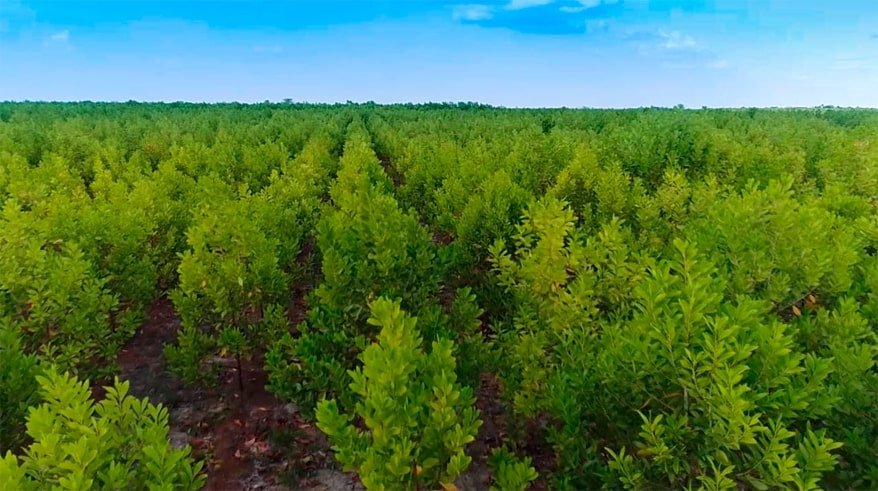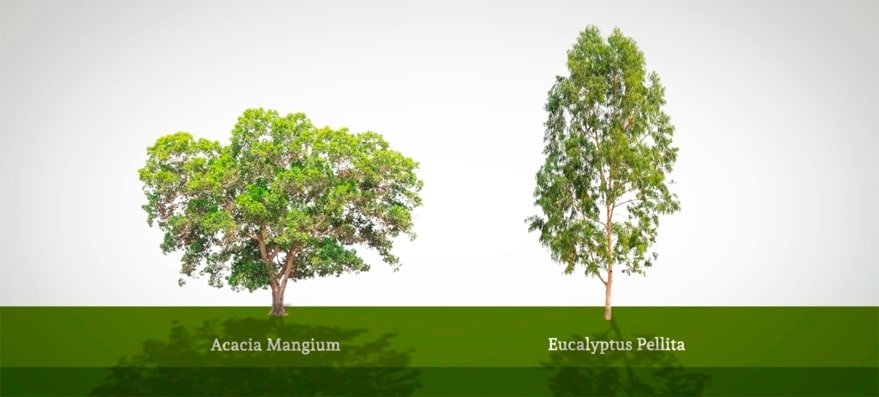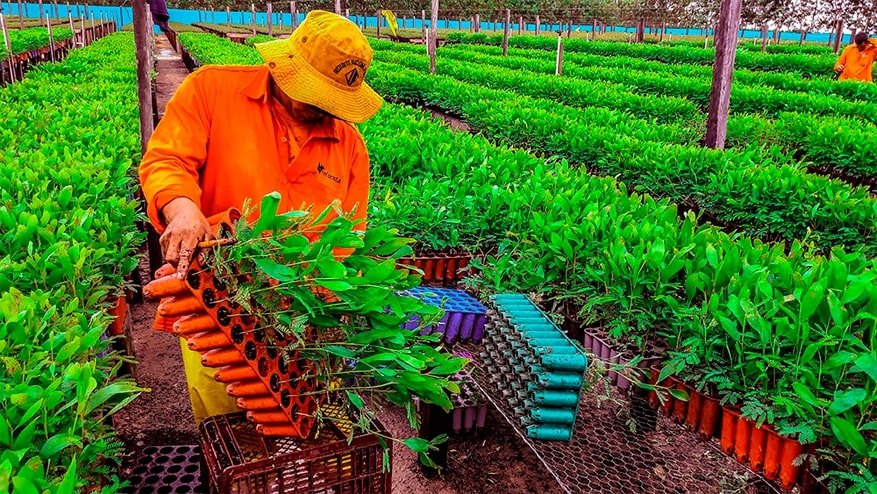
Colombia has over 17 million hectares considered suitable for Agroindustry developments of which only 2% is currently being used.
The Eastern Plains of Colombia comprehend over 6.3 million hectares of flat, virgin savannas perfectly adequate for forestry.
Approximately 25% of this area is located in the province of Vichada, considered the region with the most suitable farmlands for forestry in Colombia given its vast extensions of flat land and excellent weather conditions.
Farmland in this region of the country is known for its excellent weather conditions, abundance of water, as well as other natural resources.
The climate is tropical with temperatures ranging between 25 and 35°C and a relative humidity of 84%. Altitude fluctuates between 70 and 120 meters above sea level, luminosity is of 2,938 hours per year and precipitations between 1,800 and 2,900 millimeters of water per year.
Each of these ideal conditions benefit the rapid development of the tree species as wood production reaches an average of 25 m3/ha/ year.
In addition, as Vichada remains a predominantly underdeveloped region, farmland can be purchased at very favorable prices, which allows a very promising land valuation potential in long-term.
Furthermore, forestry plantations in this region of the country are being heavily promoted by means of economic incentives granted by the Government such as the Forestry Incentive Certificate (Certificado de Incentivo Forestal – CIF) as well as by longstanding income tax exemptions.
The Land

The different farmlands where the forestry project is being developed were not randomly chosen but rather carefully selected, taking into consideration the fulfillment of certain mandatory criteria, such as:
- Proximity to the plantations’ main nursery and to other plantations managed / operated by the same group, thus generating economies of scale.
- Proximity to where the main road is projected to be paved and to local rivers, both of which allow for most efficient transportation costs.
- Ideal soil conditions that benefit the rapid growth of tree species. This criteria was validated with comprehensive soil feasibility studies before the negotiation of the property.
In total, 8,697 hectares (21,491 acres) have been purchased over the last 4 years, adding up to the existing portfolio of 60,000+ hectares under management by the forestry operator.
The Species

The two most adequate species for forestry in this region are: Acacia Mangium and Eucalyptus Pellita SP, both of them vastly used in the paper, pulp, fuel (charcoal), boards, posts, furniture and construction industries, among many other uses, but also highly attractive for the wooden biomass industry, in form of chips or pellets, internationally used for energy production.
Due to the weather and soil conditions of the region, these species also feature the highest growing rates, making them ideal for our project and for the final destination that we have for our wood.
As per the Acacia Mangium, it has the additional component of being particularly attractive to bees, a very relevant issue given that we have contemplated the possibility of doing intercropping through apiculture, just as we’ve done with other plantations in the region, and through which an additional source of income, non-dependent to the sales of wood, may be derived. Such a project may be established after the third year of the tree-farm.
The Product

There are several different ways to commercialize the final product at the end of the cycle. For instance, a simple alternative consists in selling the trees onsite (forest flight) to a timber company who can then harvest the plantation at its own expense.
We can also sell the wood to local buyers who will use it for the thriving construction, sawmill or paper industries; or naturally, we may export the product, either with or without added value, to satisfy the endless foreign appetite for sustainable wooden products.
Despite all these perfectly feasible options, we have detected a truly unique opportunity in industry of energy generation through biomass, particularly with the use of wood chips and/or pellets, primarily in the international arena but also in the nascent local industry.
This is the strategic sales route defined for the project and on which we will be concentrating all our efforts.
Sustainability

We are committed to provide not only a strong and secure economic benefit to our investors but also to promote and develop an agriculturally sustainable and environmentally responsible project.
This is why every single plantation counts with a strict environmental management plan containing critical measurements, restrictions and actions that promote the conservation and sustainability of the forests and the biodiversity of the region.
For instance, all fertilization processes of the plantations are conducted manually on-site and on a tree-by-tree basis, no foliar-sprinkling fertilizer or chemical that might generate contamination to the native flora is ever applied.
Furthermore, our plantations are developed in areas free of native forests such as savannas and plains, where our trees generate new CO2 captures for the whole region
